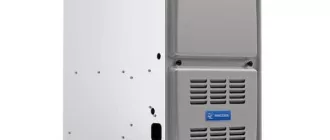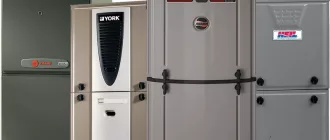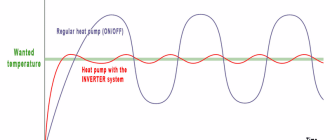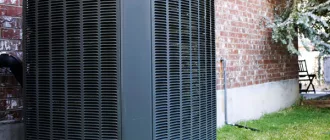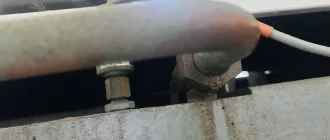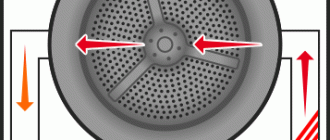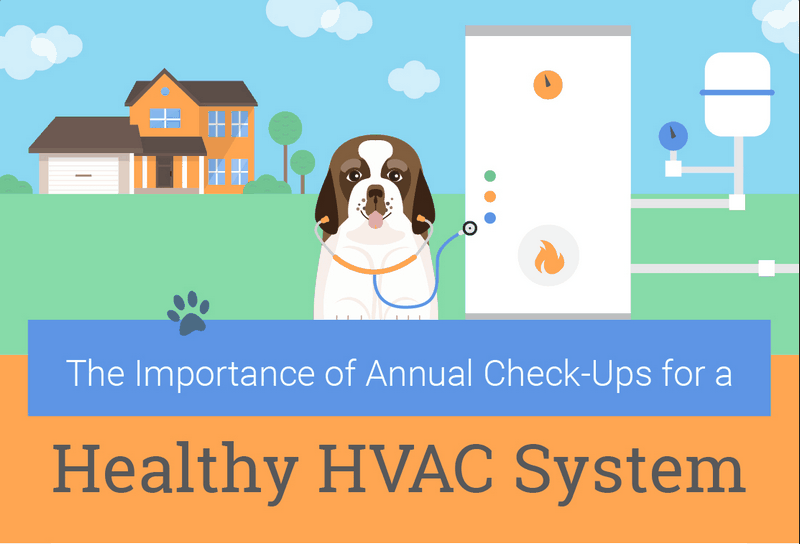
Understanding the Significance of Seasonal Check-ups for Your HVAC System
In order to keep your HVAC system running smoothly all year round, it is crucial to schedule regular seasonal check-ups. These check-ups are essential for maintaining the efficiency and longevity of your HVAC system.
Seasonal check-ups allow HVAC professionals to identify and address any potential issues before they escalate into major problems. By having your HVAC system inspected and serviced on a seasonal basis, you can avoid unexpected breakdowns and costly repairs.
Regular maintenance not only helps to prevent sudden failures but also ensures that your HVAC system is running at its peak performance. This can lead to improved energy efficiency, reduced utility bills, and a more comfortable indoor environment.
By investing in seasonal check-ups and maintaining your HVAC system, you can extend its lifespan and maximize its functionality. Don’t wait until it’s too late – schedule your seasonal check-up today and enjoy a worry-free HVAC experience!
The Importance of Seasonal Check-ups for HVAC Maintenance
Regular check-ups are an essential part of maintaining HVAC systems. By scheduling seasonal check-ups for your HVAC system, you can ensure that it operates efficiently and effectively all year round.
One of the key reasons for these check-ups is to prevent potential issues before they become major problems. During a seasonal check-up, a professional technician will inspect your HVAC system, detecting any signs of wear and tear or potential malfunctions. By addressing these issues early on, you can avoid costly repairs or even system breakdowns down the line.
Another important aspect of seasonal check-ups is ensuring optimal energy efficiency. HVAC systems that are not properly maintained tend to use more energy, leading to higher utility bills. By conducting regular check-ups, technicians will clean and calibrate your HVAC system, ensuring that it operates at its peak efficiency. This not only saves you money but also reduces your carbon footprint.
In addition to energy savings, seasonal check-ups also contribute to better indoor air quality. HVAC systems that are neglected can accumulate dust, pollen, and other allergens, which can be harmful to your health. During a check-up, technicians will clean and replace air filters, remove debris from ducts, and inspect ventilation components. This helps to improve air circulation and remove any potential contaminants, ensuring that you and your family breathe clean and healthy air.
Lastly, regular check-ups can prolong the lifespan of your HVAC system. By addressing any issues or malfunctions early on, you can prevent further damage and extend the overall lifespan of your system. This saves you money in the long run, as replacing an entire HVAC system is much costlier than regular maintenance.
In conclusion, seasonal check-ups are of utmost importance when it comes to HVAC maintenance. By scheduling regular check-ups, you can prevent potential issues, ensure optimal energy efficiency, improve indoor air quality, and prolong the lifespan of your HVAC system. Don’t neglect the importance of seasonal check-ups and take proactive steps to maintain your HVAC system for years to come.
Extending the Lifespan of Your HVAC System
Regular maintaining and check-ups are crucial for the longevity and performance of your HVAC system. Seasonal inspections and maintenance play a vital role in ensuring your unit operates efficiently all year round.
To extend the lifespan of your HVAC system, it is essential to schedule regular check-ups by professional technicians. These check-ups allow them to identify and address potential issues before they develop into major problems, helping to prevent costly repairs or even replacement.
During these seasonal check-ups, the technicians will thoroughly clean and inspect all components of your HVAC system, including the air filters, coils, and vents. They will also check for any leaks, loose connections, or worn-out parts that may affect the performance of your unit.
Regular maintenance not only extends the lifespan of your HVAC system but also improves its efficiency. A well-maintained system not only provides better comfort but also consumes less energy, resulting in lower utility bills.
Additionally, maintaining your HVAC system regularly can help improve indoor air quality. Clean filters and properly functioning ducts can reduce the presence of allergens, dust, and other contaminants in your home.
By investing in seasonal check-ups and ongoing maintenance, you can ensure that your HVAC system operates at its best for years to come. Don’t wait until something goes wrong – take proactive steps to ensure the longevity and efficiency of your HVAC system.
Improving Energy Efficiency
As you prioritize seasonal check-ups for your HVAC system, it is important to also focus on improving its energy efficiency. By making a few simple changes, you can save money on your energy bills and reduce your environmental impact.
Here are some tips to help you improve the energy efficiency of your HVAC:
- Upgrade to a programmable thermostat: By installing a programmable thermostat, you can easily set temperature schedules and avoid unnecessary energy consumption.
- Seal and insulate your ductwork: Leaky ducts can waste a significant amount of energy. Properly sealing and insulating your ductwork can help improve airflow and prevent air leakage.
- Clean or replace air filters regularly: Dirty air filters can restrict airflow and cause your HVAC system to work harder and consume more energy. Make sure to clean or replace your air filters at least once every three months.
- Consider upgrading to energy-efficient equipment: If your HVAC system is outdated, it may be worth considering an upgrade to a more energy-efficient model. Look for systems that have a high SEER (Seasonal Energy Efficiency Ratio) rating.
- Maintain proper ventilation: Good ventilation plays a crucial role in improving energy efficiency. Make sure that your ventilation systems are free from blockages and functioning properly.
- Perform regular maintenance: Seasonal check-ups are important not only for identifying potential issues but also for keeping your HVAC system operating at peak efficiency. Regular maintenance, such as cleaning coils and checking refrigerant levels, can help improve energy efficiency and extend the lifespan of your equipment.
- Adjust your thermostat settings: Small adjustments to your thermostat settings can make a big difference in energy consumption. Consider setting your thermostat a few degrees higher in the summer and a few degrees lower in the winter to save energy.
By following these energy-saving tips and continuing with regular seasonal check-ups, you can ensure that your HVAC system is operating efficiently and effectively all year round.
Enhancing Indoor Air Quality
Regular check-ups for your HVAC system are crucial for maintaining its efficiency and longevity. However, another important aspect that often gets overlooked is the impact of your HVAC system on indoor air quality.
Poor indoor air quality can lead to various health issues, including allergies, respiratory problems, and even serious diseases. Dust, pollen, pet dander, and other allergens can accumulate in your HVAC system and get circulated throughout your home. Additionally, mold and bacteria growth can occur in neglected air ducts.
To enhance indoor air quality, it is essential to keep your HVAC system clean and well-maintained. Regularly changing air filters is one of the most effective ways to prevent the buildup of allergens and maintain clean air. You should also consider investing in high-quality air filters that can effectively capture smaller particles.
In addition to proper maintenance, using a humidifier or dehumidifier can also improve indoor air quality. These devices can help control the moisture levels in your home, preventing the growth of mold and bacteria.
Another way to enhance air quality is by using air purifiers or UV germicidal lights. Air purifiers can filter out contaminants from the air, while UV germicidal lights can kill bacteria and viruses. These devices can be installed alongside your HVAC system to provide cleaner and healthier air.
In conclusion, while regular check-ups and maintenance for your HVAC system are important, it is equally vital to prioritize indoor air quality. By implementing these strategies, you can create a healthier environment for you and your family.
Identifying and Preventing Potential Issues
Regular seasonal check-ups of your HVAC system are vital to ensure its longevity and optimal performance. During these check-ups, HVAC technicians thoroughly inspect and clean the system, ensuring that all components are in proper working order.
By conducting seasonal check-ups, you can identify and prevent potential issues before they become major problems. Here are some common HVAC issues that can be identified during these check-ups:
| Clogged air filters | Reduced airflow, decreased system efficiency |
| Malfunctioning thermostat | Inaccurate temperature readings, inconsistent heating or cooling |
| Dirty evaporator coils | Frozen coils, decreased cooling efficiency |
| Refrigerant leaks | Inadequate cooling, increased energy consumption |
| Worn-out fan belts | Noisy operation, decreased airflow |
By addressing these issues early on, you can save money on energy costs, prevent major breakdowns, and extend the lifespan of your HVAC system. Regular seasonal check-ups give HVAC technicians the opportunity to spot these potential issues and make the necessary repairs or replacements.
Furthermore, preventive maintenance helps improve your indoor air quality and ensures that your HVAC system operates at its peak efficiency, providing you with consistent comfort and peace of mind throughout the year.
Don’t overlook the importance of seasonal check-ups for your HVAC system. Schedule regular maintenance with a professional HVAC technician to identify and prevent potential issues, keeping your system running smoothly and efficiently for years to come.
Saving Money on Repairs
Regular maintenance of your HVAC system is essential to ensure its longevity and efficiency. By performing seasonal check-ups, you can identify any potential issues early on and address them before they turn into major problems. This not only helps to keep your HVAC system running smoothly but also helps to save you money on repairs.
Here are some tips on how to save money on HVAC repairs:
- Schedule regular maintenance: Make sure to schedule seasonal check-ups for your HVAC system. This will help to identify any potential issues and address them before they become costly repairs.
- Replace air filters: Regularly replacing your HVAC system’s air filters is an easy and inexpensive way to keep it running efficiently. Clogged filters can restrict airflow and put a strain on your system, leading to increased energy consumption and potential breakdowns.
- Keep the area around your HVAC unit clean: Remove any debris, vegetation, or obstructions around your outdoor HVAC unit. This will ensure proper airflow and prevent damage to the unit, reducing the risk of costly repairs.
- Invest in a programmable thermostat: A programmable thermostat allows you to set different temperatures throughout the day based on your schedule. This helps to reduce energy waste and lower your utility bills, ultimately saving you money.
- Address small issues promptly: If you notice any minor issues with your HVAC system, such as strange noises or inconsistent cooling, address them promptly. Ignoring small issues can lead to larger and more expensive repairs down the line.
By following these tips and maintaining your HVAC system regularly, you can save money on repairs and ensure that your system functions optimally all year round.
Avoiding Unexpected Breakdowns
Regular check-ups are vital for maintaining your HVAC system and minimizing the risk of unexpected breakdowns. By scheduling seasonal inspections and routine maintenance, you can identify potential issues early on and take necessary steps to prevent costly repairs and emergency breakdowns.
During these check-ups, HVAC professionals will thoroughly inspect and clean your system, ensuring that all components are functioning optimally. They will address any minor issues before they escalate into major problems, helping you avoid inconvenient breakdowns during extreme weather conditions.
Additionally, proper maintenance will extend the lifespan of your HVAC system, saving you money in the long run. Regular cleaning and maintenance tasks include changing air filters, lubricating moving parts, inspecting electrical connections, and checking refrigerant levels.
By investing in regular check-ups and maintenance for your HVAC system, you can rest assured that it will operate efficiently and reliably throughout the year. Don’t wait for your system to break down unexpectedly – take proactive measures to keep it in top condition and avoid inconvenient and costly repairs.
Ensuring Optimal Heating and Cooling Performance
Seasonal HVAC check-ups are crucial for maintaining the optimal heating and cooling performance of your system. Regular maintenance helps identify and address potential issues before they become major problems, ensuring that your HVAC system operates efficiently throughout the year.
By scheduling seasonal check-ups, you can prevent unexpected breakdowns and costly repairs. HVAC professionals will inspect and clean your system, checking for any worn-out or faulty components that need to be repaired or replaced.
Proper maintenance also plays a significant role in prolonging the lifespan of your HVAC system. Regular check-ups allow technicians to lubricate moving parts, calibrate thermostats, and ensure that all electrical connections are secure. These preventive measures help prevent premature wear and tear, which can result in reduced performance and higher energy bills.
Additionally, seasonal check-ups help improve indoor air quality. HVAC systems accumulate dust, dirt, and other pollutants over time, which can negatively impact your health and comfort. During a check-up, technicians will clean or replace filters and remove any debris that may be obstructing airflow. This helps ensure that the air circulating in your home is clean and free from irritants.
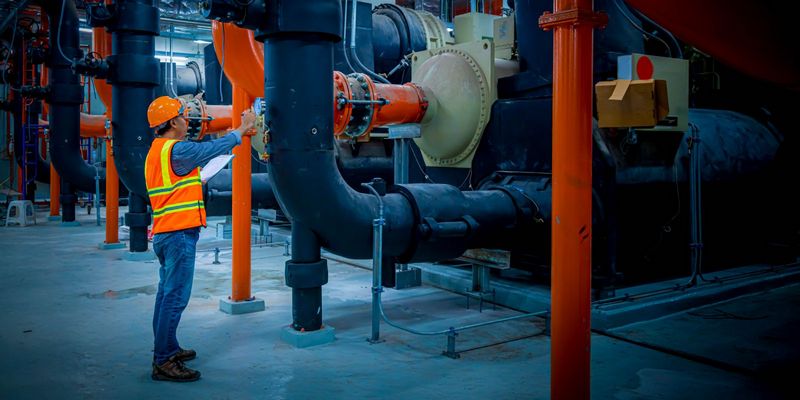
Maintaining your HVAC system is not just about ensuring comfort; it is also about saving money. A properly maintained system operates efficiently, consuming less energy and reducing your monthly utility bills. By investing in regular check-ups, you can enjoy a comfortable home environment while maximizing energy savings.
In conclusion, maintaining your HVAC system through seasonal check-ups is of utmost importance. It ensures optimal heating and cooling performance, extends the lifespan of your system, improves indoor air quality, and helps you save money in the long run. Don’t underestimate the difference that regular maintenance can make for your comfort and your wallet.
Maintaining Warranty Compliance
Regular check-ups are not only important for the overall maintenance of your HVAC system, but they are also crucial for maintaining warranty compliance.
Most HVAC manufacturers require homeowners to schedule regular seasonal check-ups in order to keep the warranty valid. These check-ups ensure that your HVAC system is running at its optimal performance and help identify any potential issues before they become major problems.
By keeping up with the recommended check-up schedule, you can provide documentation to the manufacturer that you have taken the necessary steps to maintain your HVAC system. This documentation is often required in the event of a warranty claim to prove that you have followed the manufacturer’s guidelines for maintenance.
Failure to comply with the warranty requirements, including regular check-ups, can result in the manufacturer denying your claim and voiding your warranty. This could leave you responsible for costly repairs or replacements that would have otherwise been covered.
By prioritizing seasonal check-ups and maintaining warranty compliance, you can ensure that your HVAC system remains in good working order and that you have the peace of mind that comes with knowing you’re covered in the event of any issues.
Expert Recommendations for Filter Replacement
One of the most important aspects of seasonal HVAC check-ups is the regular replacement of filters. Clean air filters help maintain good indoor air quality and ensure efficient operation of your HVAC system. Here are some expert recommendations for filter replacement:
- Frequency: Depending on the type of filter you have, it is recommended to replace it every 1-3 months. Disposable filters typically require monthly replacement, while high-efficiency filters may last up to 3 months.
- Inspect Regularly: Check your filter monthly to assess its condition. If it appears dirty or clogged, replace it immediately, even if it hasn’t been the suggested time frame.
- Size Matters: Ensure the replacement filter matches the correct size for your HVAC system. Using the wrong size can compromise its effectiveness and potentially damage your system.
- MERV Ratings: Consider the Minimum Efficiency Reporting Value (MERV) rating when selecting a replacement filter. Higher MERV ratings indicate better filtration and improved air quality, but they may also restrict airflow and require more maintenance.
- Additional Filters: Depending on your HVAC system, you may have multiple filters. In addition to the main filter, check and replace any other filters in your system, such as those in air purifiers or humidifiers.
- Professional Advice: If you are unsure about the type of filter or how to replace it, consult with a qualified HVAC professional. They can provide expert guidance tailored to your specific HVAC system.
By following these expert recommendations for filter replacement, you can ensure that your HVAC system is functioning efficiently, maintain good indoor air quality, and prolong the lifespan of your equipment.
Remember, regular maintenance and check-ups, including filter replacement, are crucial in keeping your HVAC system in optimal condition throughout the year.
Professional Cleaning and Lubrication
As part of maintaining your HVAC system, regular professional cleaning and lubrication are of utmost importance. These tasks are typically included in seasonal check-ups to ensure the proper functioning and longevity of your system.
Cleaning your HVAC system involves removing any dust, debris, or other particles that have accumulated over time. This is important because a buildup of dirt can obstruct airflow, decrease efficiency, and even lead to system malfunctions. A professional HVAC technician will thoroughly clean all components of your system, including the evaporator coil, condenser coil, and blower motor. They will use specialized tools and cleaning agents to remove any dirt and grime, leaving your system clean and free of obstructions.
In addition to cleaning, lubrication is another crucial step in maintaining your HVAC system. Lubrication helps to reduce friction and wear on moving parts, such as bearings and motors. This not only improves the performance and efficiency of your system but also extends its lifespan. A professional technician will apply the appropriate lubricant to all necessary components, ensuring smooth operation and minimizing the risk of mechanical failures.
| 1. Improved airflow and energy efficiency. |
| 2. Reduced risk of system malfunctions. |
| 3. Extended lifespan of your HVAC system. |
| 4. Enhanced indoor air quality. |
| 5. Cost savings on potential repairs or replacements. |
By regularly scheduling professional cleaning and lubrication as part of your seasonal check-ups, you can ensure that your HVAC system operates at its best all year round. Don’t neglect the importance of these services in maintaining the comfort and efficiency of your home or business.
Checking and Adjusting Thermostat Settings
When it comes to maintaining your HVAC system, checking and adjusting thermostat settings is of utmost importance. The thermostat is the control center of your HVAC system and plays a crucial role in regulating the temperature of your home.
Regularly checking and adjusting your thermostat settings can help ensure that your HVAC system is operating efficiently and providing optimal comfort. Here are a few key steps to take:
1. Check the temperature setting: Make sure the thermostat is set at the desired temperature. Adjust as needed to achieve the level of comfort you desire.
2. Program your thermostat: If your thermostat has programmable features, take advantage of them. Set different temperature levels for different times of the day to optimize energy savings and comfort.
3. Change the thermostat batteries: Some thermostats require batteries for proper functioning. Check the battery level regularly and replace them when necessary.
4. Clean the thermostat: Dust and debris can accumulate around the thermostat, affecting its accuracy. Use a soft cloth to clean the thermostat and ensure proper functionality.
5. Consider a smart thermostat: Upgrading to a smart thermostat can provide even greater control over your HVAC system. These devices can learn your preferences and adjust settings automatically, optimizing energy efficiency.
By regularly checking and adjusting your thermostat settings, you can ensure that your HVAC system operates efficiently, providing comfort and savings throughout the seasons.
Assessing the Condition of Ductwork
When it comes to maintaining your HVAC system, regular check-ups are of utmost importance. However, it’s not just the mechanical components that need attention. The condition of your ductwork plays a crucial role in the overall efficiency and performance of your HVAC system.
Over time, your ductwork can become damaged or deteriorated, leading to air leaks and decreased airflow. This not only affects the efficiency of your system but also compromises the indoor air quality in your home or business.
During a seasonal check-up, HVAC professionals will assess the condition of your ductwork to identify any signs of damage or deterioration. They will inspect for leaks, cracks, or loose connections that may be allowing conditioned air to escape. By addressing these issues, you can prevent energy loss and ensure that your system is delivering the air where it’s needed most.
Additionally, assessing the condition of your ductwork can help identify areas that may be prone to mold growth or pest infestation. Moisture or gaps in the ductwork can create the perfect environment for mold to thrive, and openings in the ducts can allow pests to enter and nest.
By including a thorough inspection of your ductwork in your regular HVAC maintenance routine, you can catch any potential problems early on and avoid costly repairs or replacements down the line. Not only will this help extend the lifespan of your HVAC system, but it will also contribute to a healthier and more comfortable indoor environment for you and your loved ones.
Inspecting Electrical Connections and Components
In addition to regular check-ups and maintenance, inspecting the electrical connections and components of your HVAC system is crucial in ensuring its optimal performance and longevity.
Importance of Inspecting Electrical Connections:
The electrical connections in your HVAC system play a vital role in its overall functionality. Over time, these connections may become loose or corroded, which can lead to poor electrical flow and potential system failure. By inspecting and tightening these connections, you can prevent any electrical issues and ensure the smooth operation of your HVAC system.
Inspecting Electrical Components:
During the seasonal check-ups, a trained technician will thoroughly inspect the electrical components of your HVAC system. This includes examining the capacitor, relays, contactors, and circuit boards to ensure they are in proper working condition. Any faulty or worn-out components will be replaced to prevent potential breakdowns.
Maintaining the electrical connections and components of your HVAC system is essential for its reliable and efficient operation. Neglecting these crucial components can lead to costly repairs and shorter system lifespan. By prioritizing regular inspections, you can ensure the longevity and performance of your HVAC system.
Scheduling Your Seasonal HVAC Check-up
Regular check-ups for your HVAC (heating, ventilation, and air conditioning) system are essential for maintaining its efficiency and extending its lifespan. By scheduling seasonal check-ups, you can ensure that your HVAC system is operating at its peak performance, reduce energy consumption, and avoid costly repairs in the long run.
Here are the key reasons why scheduling seasonal HVAC check-ups is of utmost importance:
- Optimal Performance: Seasonal check-ups allow HVAC professionals to thoroughly inspect and clean various components of your system. This ensures that all parts are working properly and prevents any potential issues from escalating into major repairs. By addressing any issues early on, you can maintain optimal performance and comfort in your home.
- Energy Efficiency: A well-maintained HVAC system operates with greater efficiency, resulting in lower energy consumption and utility bills. During a seasonal check-up, HVAC technicians will assess the system’s efficiency and make any necessary adjustments. This can include cleaning or replacing air filters, checking refrigerant levels, and ensuring proper airflow. By making these small improvements, you can significantly reduce your energy costs.
- Extended Lifespan: Regular maintenance and check-ups help extend the lifespan of your HVAC system. By detecting and addressing minor issues early on, you can prevent major breakdowns and extend the overall lifespan of your equipment. This can save you from the hassle of premature replacement and the expenses associated with it.
- Improved Indoor Air Quality: Your HVAC system plays a crucial role in maintaining the indoor air quality of your home. During a seasonal check-up, HVAC technicians will clean the system, remove any dirt or debris, and ensure proper ventilation. This helps prevent the buildup of allergens, pollutants, and contaminants, improving the air quality inside your home and promoting a healthier living environment.
To ensure the optimal functioning of your HVAC system and enjoy its benefits throughout the year, make sure to schedule seasonal check-ups. Contact a trusted HVAC professional today to schedule your next check-up and experience the difference it can make in your home’s comfort and efficiency.
Q&A:
What is the importance of seasonal check-ups for HVAC systems?
Seasonal check-ups are important for HVAC systems because they help ensure that the system is running efficiently and effectively. By having regular maintenance, potential issues can be identified and addressed before they turn into major problems. This can save you money on repairs and replacements in the long run. Additionally, seasonal check-ups help improve indoor air quality by cleaning and removing any built-up dust, dirt, or debris in the system.
How often should I have a seasonal check-up for my HVAC system?
It is recommended to have a seasonal check-up for your HVAC system at least twice a year – once before the start of the cooling season and once before the start of the heating season. This ensures that your system is properly prepared for the upcoming season and can operate efficiently. However, if you notice any problems or changes in your HVAC system’s performance, it is best to schedule a check-up sooner to address the issues.
What should I expect during a seasonal check-up for my HVAC system?
During a seasonal check-up for your HVAC system, a trained technician will inspect and clean various components of the system. This may include checking and tightening electrical connections, lubricating moving parts, cleaning or replacing filters, inspecting the condensate drain, checking thermostat settings, and testing the system’s performance. The technician may also provide recommendations for any necessary repairs or improvements to optimize the system’s efficiency.
Can I perform a seasonal check-up for my HVAC system myself?
While there are some basic maintenance tasks that homeowners can perform, such as regularly replacing air filters, a comprehensive seasonal check-up is best left to a trained HVAC technician. They have the knowledge, experience, and proper tools to thoroughly inspect and service the system. Attempting to perform complex tasks without the necessary expertise can potentially lead to further damage or safety hazards.
What are the potential consequences of not having regular seasonal check-ups for my HVAC system?
The potential consequences of not having regular seasonal check-ups for your HVAC system can include reduced efficiency and performance, higher energy bills, increased risk of breakdowns or malfunctions, and reduced lifespan of the system. Neglecting maintenance can also lead to indoor air quality issues, as dirty filters and ducts can circulate allergens, dust, and other pollutants throughout your home. Additionally, manufacturers’ warranties may require regular maintenance in order to remain valid, so not having check-ups could void the warranty.
What is the importance of seasonal check-ups for HVAC?
Seasonal check-ups for HVAC are important because they help to ensure that your system is working efficiently and effectively. Regular maintenance can help to prevent breakdowns and costly repairs, as well as extend the lifespan of your HVAC system.

